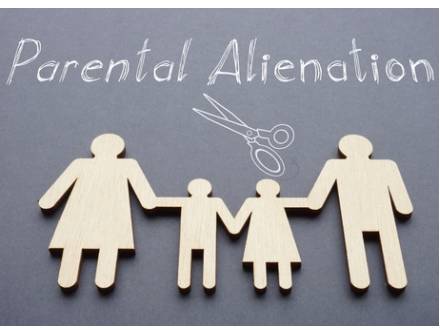Free Consultations
847-859-6222
Can Parental Alienation Factor into an Illinois Custody Decision?
 Although different terms have been used to describe the alienation, brainwashing, or manipulation of a child during the split of their parents and child custody decisions, what is now known as alienation of parental affection has occurred at least since the 1800s. When renowned poet Percy Bysshe Shelley separated from his wife Harriet, the couple had a three-year-old daughter, and Harriet was pregnant with the couple’s son.
Although different terms have been used to describe the alienation, brainwashing, or manipulation of a child during the split of their parents and child custody decisions, what is now known as alienation of parental affection has occurred at least since the 1800s. When renowned poet Percy Bysshe Shelley separated from his wife Harriet, the couple had a three-year-old daughter, and Harriet was pregnant with the couple’s son.
Harriet and her parents shut Shelley out of the lives of his children, and when Harriet committed suicide in 1816, Shelley was not even told of the death. Once he found out, he petitioned the court for custody of his children. The grandparents immediately began an assassination of character campaign, which was extremely successful. Shelley never saw his children again.
Since that time, turning children against one parent through lies and manipulation on the part of the other continues to happen and even has a name—parental alienation. There are no states across the nation that have a specific parental alienation law. Most states do, however, acknowledge the existence of parental alienation, along with the damage it can cause.
If you are facing parental alienation from your ex, you need the advice and counsel of a knowledgeable Rolling Meadows family law attorney. Once you have an attorney on board who knows exactly how to deal with parental alienation, at least some of the stress you are experiencing may disappear.
What Is Parental Alienation?
A syndrome called parental alienation occurs when one parent actively seeks to isolate their child from the other parent. The goal is to destroy the parent-child relationship by repeatedly saying negative things about the other parent in front of the children. Some parents will tell their children that "Daddy does not love you anymore" or "Your mother is too lazy to get a job, so you cannot have nice things."
The goal of divorcing parents is always to set aside their differences, at least where the children are concerned. Far too many parents used parental alienation to gain an advantage in a custody decision or simply out of spite—to "get back at" their ex. Children who are victims of parental alienation may:
- Disapproval expressed toward the targeted parent
- Justification for their hostility toward the targeted parent and the targeted parent’s family
- The opinions of the alienator are adopted by the child
- The child exhibits rude, ungrateful behavior when with the targeted parent
- Idealization of the alienating parent
Will Proving Parental Alienation Make a Difference?
While an Illinois court may believe and recognize that parental alienation exists, the actual "parental alienation syndrome," as presented, is not accepted during a custody battle. The best interests of the child are always the driving factor in decisions made on behalf of the child. Under 750 ILCS 5/602, the courts frown upon parents who fail to facilitate an open, continuing relationship between the child and non-custodial parent.
Liberal visitation for the non-custodial parent is the rule, not the exception. Parents may not be denied visitation unless it can be shown the child is endangered by the parent’s behavior. While parental alienation may not have a separate statute, the behavior will not be okay with a family law judge.
What Are the Traits of an Alienator, and How Do You Fight Against It?
Parental alienators are master manipulators; more than one expert on the subject has classified parental alienation as child abuse. When a parent interferes with the rights of the child and the other parent to have a strong, healthy relationship, the child is the one who suffers the most. While either parent can engage in parental alienation, studies show the behavior is more common among mothers. Parents who seek to alienate a child and parent from one another may have the following characteristics:
- Narcissistic tendencies
- Emotional hyper-reactivity
- Easily angered
- Lies easily, even when there is little reason to do so
Contact a Lake County, IL Family Law Attorney
When you choose a Highland Park, IL family law attorney from Ann O’Connell Law, Ltd., you will have a person on your side who will help you document instances of parental alienation and then present that evidence to the court. You will have a lawyer willing to petition the court to have your ex pay your legal fees while providing hands-on, personalized representation. Call Ann O’Connell Law, Ltd. at 847-859-6222 for a free consultation with a highly skilled family law attorney.










